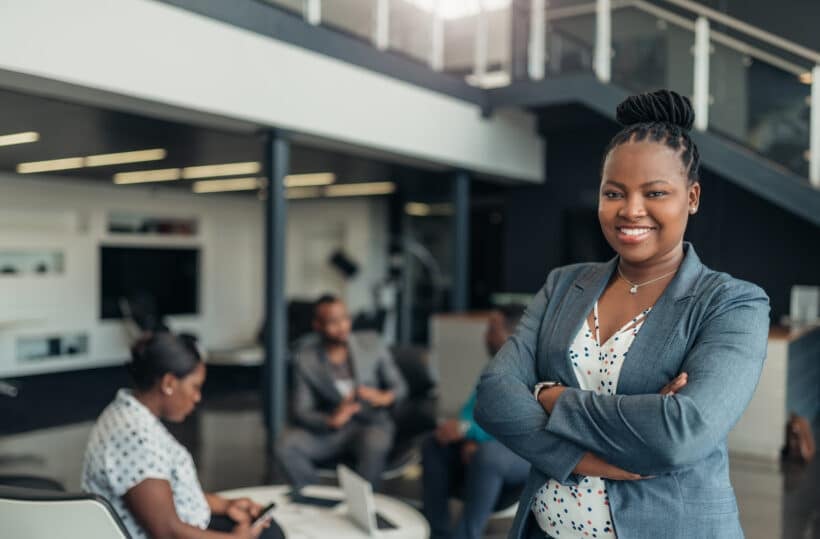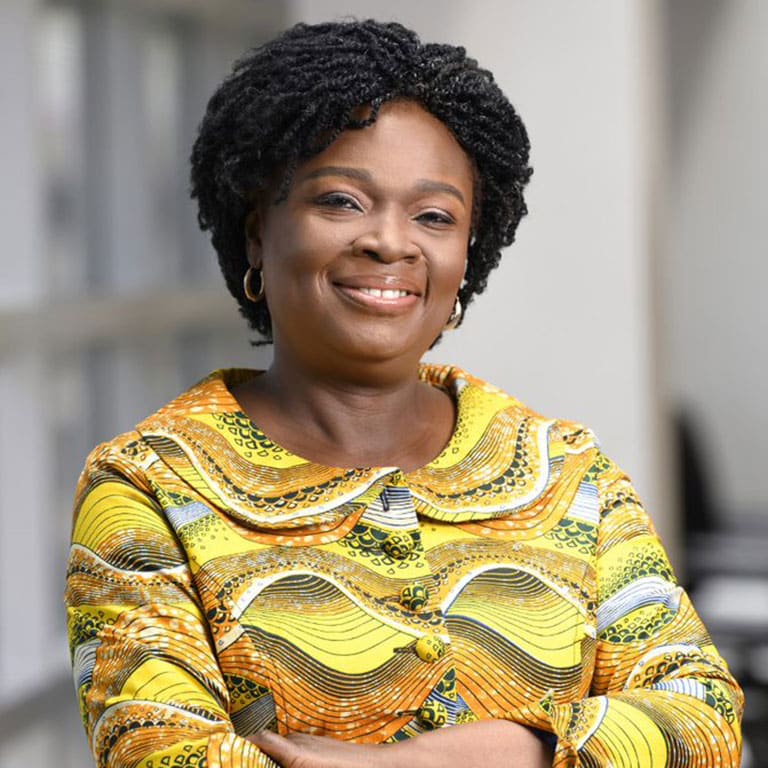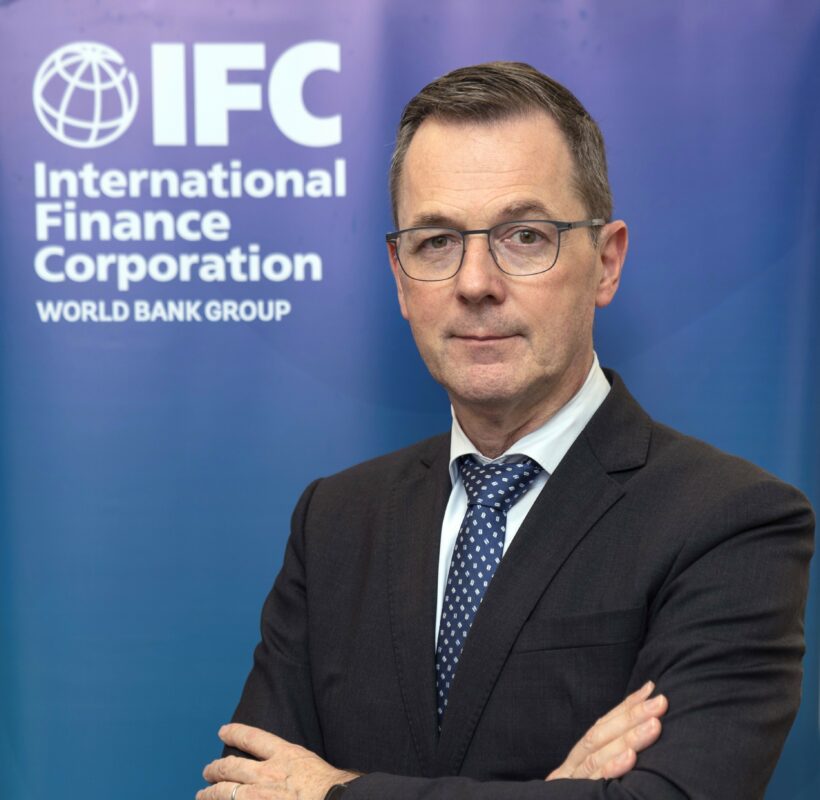
As we celebrate Women’s History Month, it is worth asking how we can best support and accelerate gender equality and access to opportunity in Africa’s private sector.
First, make no mistake: gender inequality remains a serious global issue, persistent in even the world’s richest and most developed countries. But women in Africa face a unique set of challenges that are holding them back and limiting their progress—and, in turn, delaying the progress of the whole continent.
African women entrepreneurs routinely lament the lack of access to networks, to markets and to finance. The latter, access to finance, also affects men, of course, yet women’s share of Africa’s funding pool is much smaller. Several sources estimate the financing gap for Africa’s women entrepreneurs at about $40 billion, roughly twice the size of Mozambique’s annual GDP.
Women leading African start-ups also face formidable financing barriers—and are largely crowded out by men. Only 7 percent of ventures raising more than $10 million in Africa in 2023 were led by women, according to Africa: The Big Deal, a database and newsletter providing insights into start-up funding in Africa. The same source notes that start-ups with a solo female founder, or an all-female founding team, raised a mere 2.3 percent of all the funding in Africa last year.
But there is better news too. Many governments across sub-Saharan Africa are helping level this historically tilted playing field by enacting policies that support gender equality—and eliminating policy challenges.
According to the World Bank Group’s Women, Business and the Lawreports, several African countries have recently implemented the bulk of global, gender-related legal reforms, including those focused on increasing paid leave for parents, removing restrictions on women’s work, and mandating equal pay.
This is progress. However, the same reports note that equality of economic opportunity for women remains the lowest globally in North Africa. In many countries in Africa, women still need a man’s signature to obtain a bank loan, for example.
But what about digital technology? A game changer? Maybe. Digital tech is certainly broadening financial inclusion and access to financial services. However, because men are more likely than women to own a smart phone or be connected to the Internet in Africa, there exists a stubborn ‘digital divide’, according to a UN report, among other research.
There’s more. Women in Africa also face heightened levels of gender-based violence, especially in the continent’s many fragile and conflict-affected countries, and few options for childcare or child support, which dissuades many from launching businesses or taking on full-time employment.
With all this in mind, ambitious women in Africa might be too discouraged to start businesses. They shouldn’t be.
IFC, the World Bank, and many other development and financial institutions are ramping up their work supporting women in Africa, better grasping the complexity—and tenacity—of the gender gap and designing programs to tackle it from all sides.
In other words, we are integrating a focus on gender across more and more of our work, from investments to advisory services programs, approaching the challenges more strategically and deliberately, listening to women and learning what support they need most.
This means understanding and acting on those three big gaps: access to networks, access to markets, and access to finance.
We are certainly increasing our financing to women-led businesses, but more funding alone isn’t the solution. A bigger pie means nothing to someone without a seat at the table. What African women need – and what we are delivering – are programs that provide that seat.
For example, IFC’s Sourcing2Equal is a global program designed to increase procurement from women-owned and -led small businesses. Launched in partnership with the Women Entrepreneurs Finance Initiative (We-Fi) and the Government of Norway, the program has trained 800 women on procurement and facilitated the signing of 100 new contracts for women-owned or run businesses. This is only a start.
IFC’s She Wins Africa program offers training, mentorship and networking opportunities to women across Africa, while IFC’s Gender Equality and Returns (GEAR) program provides leadership development and management training for lower-income women. GEAR has been active in Asia and South Africa and plans to expand to other African countries.
At the World Bank, we are increasingly focused on preparing the success of women by investing in empowering adolescent girls. After all, choices made in the critical 15–19-year-old period have major repercussions on a women’s economic trajectory. Keeping girls in school and boosting their completion rates is key to increasing women’s economic participation. Continuing education for grown women entrepreneurs can also be life changing, as shown by the success stories of 32,000 women entrepreneurs in Ethiopia who have benefited from business training through a Bank-financed program that has helped many of them increase their incomes and expand their firms.
But the question of progress remains.
At IFC and the World Bank, we are seeing more and more private businesses in Africa wanting to support women, whether through focused financial products, training, procurement, or by increasing women’s participation in their workforces. Many banks are also dedicating a portion of their MSME financing to women and providing them with dedicated financial training.
As importantly—most importantly, perhaps—by supporting women today, we are helping build the networks and markets, and establish the leaders and role models, that will drive gender equality and opportunity for women in the coming years and decades in Africa.
One final statistic is worth mentioning. African women have the highest rate of entrepreneurial activity in the world at an estimated 24 percent—and are more likely to start businesses than their counterparts in other regions in the world.
The percentage is high, at least in part, because formal (or even informal) employment opportunities are limited. But instead of idling, millions of African women are rising to shape their own economic futures. We need to do all we can to support them.


Together, they co-chair the World Bank Group’s Diversity, Equity and Inclusion General Counsel.

